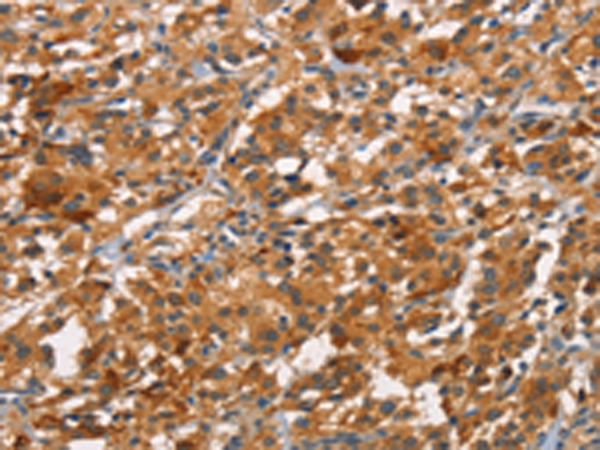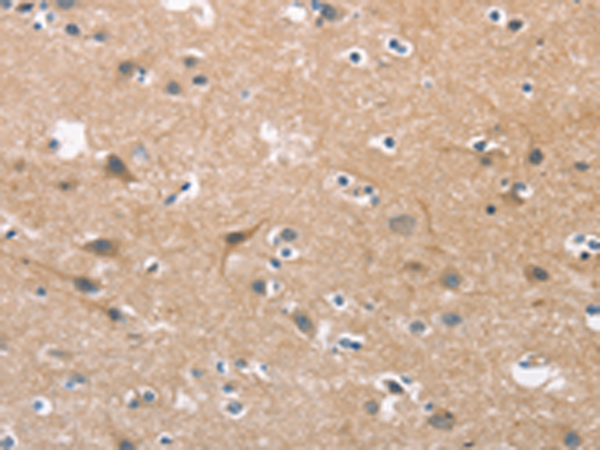

| WB | 咨询技术 | Human,Mouse,Rat |
| IF | 咨询技术 | Human,Mouse,Rat |
| IHC | 咨询技术 | Human,Mouse,Rat |
| ICC | 技术咨询 | Human,Mouse,Rat |
| FCM | 咨询技术 | Human,Mouse,Rat |
| Elisa | 咨询技术 | Human,Mouse,Rat |
| Host/Isotype | Rabbit IgG |
| Antibody Type | Primary antibody |
| Storage | Store at 4°C short term. Aliquot and store at -20°C long term. Avoid freeze/thaw cycles. |
| Species Reactivity | Human |
| Immunogen | Synthetic peptide of human CDC25B |
| Formulation | Purified antibody in PBS with 0.05% sodium azide and 50% glycerol. |
+ +
以下是3篇关于Phospho-AKT3(S472)抗体的参考文献示例(注:文献标题和内容为示例性质,具体文献需根据实际数据库检索确认):
---
1. **文献名称**: *"AKT3 phosphorylation at Ser472 regulates glioblastoma cell proliferation"*
**作者**: Johnson R. et al.
**摘要**: 本研究通过免疫印迹和免疫组化实验,验证了Phospho-AKT3(S472)抗体在胶质母细胞瘤细胞系中的特异性,发现AKT3在S472位点的磷酸化通过mTORC2通路调控肿瘤细胞增殖,抗体成功用于临床样本的激活状态检测。
2. **文献名称**: *"Role of AKT3 Ser472 phosphorylation in neuronal survival and synaptic plasticity"*
**作者**: Lee S. & Zhang Y.
**摘要**: 该研究利用Phospho-AKT3(S472)抗体在小鼠脑组织中发现,S472位点的磷酸化对神经元存活和突触可塑性至关重要,抗体特异性通过AKT3敲除细胞系验证,并揭示其与阿尔茨海默病模型的关联。
3. **文献名称**: *"Phosphorylation dynamics of AKT3 in breast cancer metastasis"*
**作者**: Gupta M. et al.
**摘要**: 通过免疫沉淀和质谱分析,本研究证实Phospho-AKT3(S472)抗体可特异性识别乳腺癌转移模型中AKT3的激活形式,揭示其磷酸化水平与患者预后负相关,并用于靶向治疗响应评估。
---
**注**:若需真实文献,建议在PubMed或Google Scholar中搜索关键词“Phospho-AKT3 Ser472 antibody”,筛选抗体验证或应用相关研究,或参考抗体供应商(如CST、Abcam)官网引用的文献列表。
The Phospho-AKT3(S472) antibody is designed to detect AKT3 (also known as Protein Kinase B gamma) when phosphorylated at serine residue 472. a key post-translational modification regulating its activity. AKT3. a member of the AKT serine/threonine kinase family, plays a critical role in cell survival, proliferation, and metabolism by transmitting signals downstream of PI3K (phosphoinositide 3-kinase). Activation of AKT3 occurs via a two-step phosphorylation process: PDK1 phosphorylates the activation loop (T305 in AKT3), followed by phosphorylation at the hydrophobic motif (S472) by mTORC2 or other kinases. This S472 phosphorylation stabilizes AKT3’s active conformation, enabling substrate binding and downstream signaling.
The Phospho-AKT3(S472) antibody specifically recognizes this phosphorylation event, distinguishing it from other AKT isoforms (AKT1 and AKT2), which are phosphorylated at the homologous residue S473. Researchers use this antibody in techniques like Western blotting, immunohistochemistry, or immunofluorescence to study AKT3 activation in contexts such as cancer, neurological disorders, or metabolic diseases. Dysregulation of AKT3 signaling, including aberrant phosphorylation, is implicated in tumor progression, neurodevelopmental defects, and insulin resistance. When using this antibody, proper controls (e.g., total AKT3 detection) and sample preparation (e.g., phosphatase inhibition) are essential to ensure specificity and accuracy. Its application aids in elucidating AKT3-specific pathways and evaluating therapeutic targets modulating AKT activity.
×